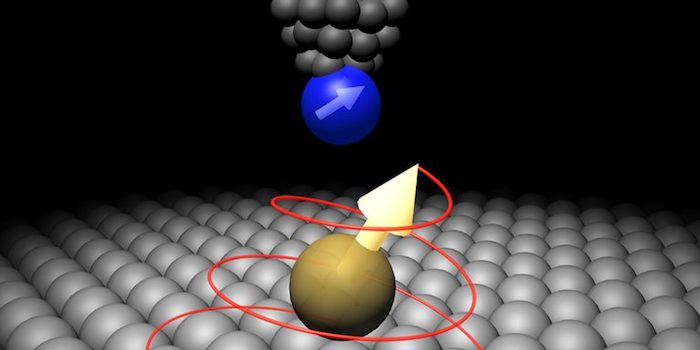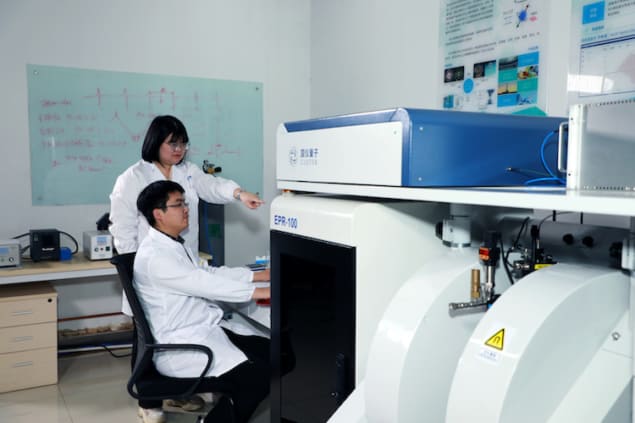Molecular qubits stick around for longer
Researchers in China have shown that the spin of a molecular quantum bit (qubit) can remain coherent for more than 1 millisecond – long enough to perform 145 000 basic logic operations. This number, known as the qubit “figure of merit”, is 40 times higher than previously reported for this molecule, raising the chances that such qubits could be used in quantum computing applications as well as in biomedical imaging and quantum sensing.
Quantum computers can, in principle, solve certain problems much faster than classical computers because they exploit a quantum particle’s ability to be in a superposition of two or more states at the same time (as opposed to classical bits that have only 0 and 1 states). Promising candidates for qubits include superconducting circuits, trapped ions, defects in solid materials and quantum dots.
Electron spins in magnetic molecules as qubits
Recently, electron spins in magnetic molecules have emerged as another qubit possibility. Compared with other physical systems, these molecular qubits have several advantages. For one, researchers can easily tailor their structure by changing their chemical makeup. It is also relatively straightforward to fabricate lots of identical molecular qubits and deposit them in regular arrays to create circuits.
Like all qubits, however, the superposed states in molecular qubits are fragile and easily disrupted by noise in the environment. This noise destroys the quantum information stored in the states, in a process known as decoherence. While various methods exist for overcoming decoherence in molecular qubits (including diluting the qubits in a diamagnetic matrix, enhancing the rigidity of the molecules and isotropic purification), the longest coherence time measured for a molecular qubit to date has been less than a millisecond.
Dynamic decoupling technique
A team at the University of Science and Technology in Hefei has now improved on that figure by applying microwave pulses to “flip” the quantum state of molecular qubits – a method known as dynamical decoupling. As team member Xing Rong explains, inverting the state of the molecule’s electron spin greatly averages out the coupling, or interaction, between the qubit and its environment, so extending the qubit’s coherence time.
Rong and colleagues made their molecular qubits from the transition-metal complex (PPh4)2[Cu(mnt)2]. Using a modified commercial X-band pulsed electron paramagnetic resonance spectrometer, they measured a coherence time of 1.4 milliseconds for the system. The previous best value for the material was just 6.8 μs.
Applications and future challenges
“The dynamical decoupling method described in our work does not require us to specially modify the molecule, in contrast to other approaches,” Rong tells Physics World. “The longer coherence time we measured could enable the molecular qubit to be widely used — not only in the field of quantum computation, but also in magnetic biomedical imaging and quantum sensing.”READ MORE

The researchers, who report their work in Chinese Physics Letters, say they now plan to steer the spin coherence of their molecular qubit at the single molecular level. “This is a key step for a molecular qubit in quantum information processing and is very challenging because the signal from a single molecular qubit is very weak,” Rong says.

from physicsworld.com 9/4/2021

Δεν υπάρχουν σχόλια:
Δημοσίευση σχολίου